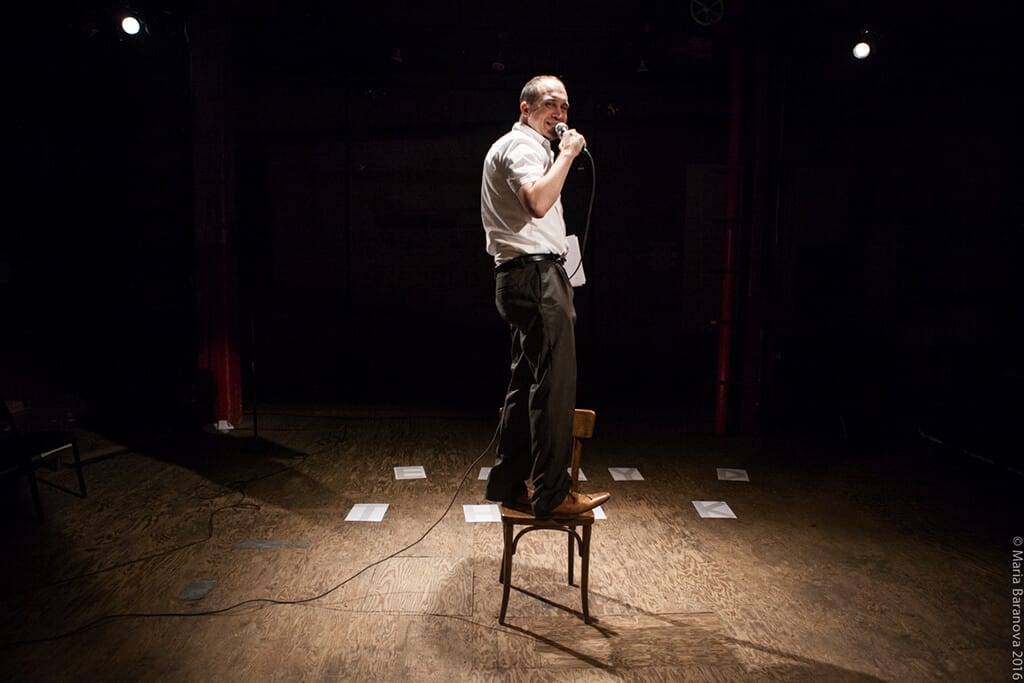Great art makes you think a little bit harder than you normally do. Christopher Thorpe, the man in the one-man show Confirmation, achieves exactly that with his performance.
The central theme of Confirmation is that everyone thinks they’re right. So, Thorpe challenges his audience to try and look at the world from a different perspective– one that, in a liberal city like New York, is likely the polar opposite of theirs. And Thorpe doesn’t choose light topics, either. No, he reenacts interviews he conducted with white supremacists and Holocaust deniers. Armed with only a singular wooden chair and a spotlight, Thorpe loudly explains their reasoning on their behalf. The audience sits around the performer in a square, listening like a jury.
Although it’s clear that Thorpe doesn’t truly believe the opinions he spouts– he opens the show by stating his liberal views– the room becomes palpably tense when he starts to explain racism in a calculated, and almost understandable, manner. The only thing to distract from his passionate monologue is the occasional movement of his chair. Yet this diversion is necessary, since it allows every member of the audience to have a few moments when they’re looking directly into his eyes.
This eye contact feels intense as the performer highlights how those who are portrayed as one dimensionally evil in the media are actually complex characters. For example, a Holocaust denier Thorpe knows is fighting to keep his neighborhood’s local businesses and fire station afloat. This story leads me to reconsider everyone who I have previously thought of as one hundred percent evil.
The sense of energy and curiosity that Thorpe brings to the room is immense. His stamina alone, speaking for 85 minutes straight, is worth commending. As the performer paces the room, he turns and takes everything that he knows as a self-proclaimed liberal and turns it upside down. At times, it’s hard to know what Thorpe truly believes as he navigates the ins and outs of the justification of racism. When he screams how “they” are coming into our country and stealing our jobs, I can truly feel his rage. When he says that white people shouldn’t feel guilty for what our ancestors have done, I can almost hear the gears in the audience member’s brains turning. Then, right as the crowd is about to be on the same page as Thorpe, he switches gears and launches into a different argument, constantly challenging everything he says.
Sure, Confirmation isn’t making a radical point. We’ve all heard someone argue that you can’t convince anyone of anything. In addition, it would have been interesting to hear Thorpe tackle issues other than white supremacy– although this is surely one of the few mindsets that most, if not all, audience members are automatically challenged to understand. Yet it’s important to know that the ultimate goal of this show isn’t to convince the audience to agree with every opinion, no matter how extreme. Rather, Thorpe uses an extreme example to help people understands others’ opinions in more average situations– Republican versus Democrat, for example. As a result, I think a few people left the theater more willing to look at the world from a different perspective than they were before. I know I am.

